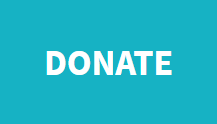Muso’s COVID-19 Response: One Month In Mali
- Muso

- May 4, 2020
- 4 min read
Updated: Oct 26, 2020

Since our founding 15 years ago, Muso has built health systems driven by the conviction that no one should die waiting for health care. The global COVID-19 pandemic has thrown into sharp relief the danger of delayed access to testing, diagnosis, supplies, and treatment. It is clearer than ever that outbreaks feed on delay. To stop COVID-19, health systems need to move faster to protect populations and health workers, identify new cases, isolate contacts, and care for patients.
As of May 4th, Mali has confirmed 580 cases of COVID-19, just over one month after the first case was identified on March 25th. Even before the first confirmed case, the Malian government had taken preemptive action to prevent COVID-19’s spread, barring commercial flights from countries with cases of the virus, closing schools, and canceling gatherings of over 50 people. The last few months have demonstrated that the virus can overwhelm even the most equipped and advanced health systems globally, so actions to prevent and slow the spread of the virus are critical in Mali, where there are few intensive care unit beds and limited access to oxygen. Mali is at risk of seeing a mortality rate from COVID-19 far higher than those recorded in other countries to date.
Muso has devoted more than a decade to creating and researching strategies that cure delay. As cases of COVID-19 spread across the globe and within Mali’s borders, the Muso team has rapidly mobilized to serve alongside our government partners in Mali’s pandemic response, both within our sites and at the national level to achieve the following goals:
1. Care for all of our patients, without delay or interruption 2. Protect our brave health care providers on the front lines 3. Accelerate the government’s national response to stop viral transmission through faster case detection, faster care, and faster isolation
Care without Interruption
As with the illnesses our Community Health Workers (CHWs) have detected and treated for years, COVID-19 will disproportionately impact the poor and vulnerable. The virus threatens not only those who will become infected but also those seeking out other essential health services. Routine care could become increasingly difficult to access as hospitals become overwhelmed and frontline health workers fall ill or are forced to self-isolate to avoid infection.
To proactively guarantee ongoing care in our sites and ensure communities are taking the precautions necessary, Muso has built out curricula for the CHWs, dedicated CHW Supervisors, nurses, physicians, and midwives at our sites in line with World Health Organization COVID response recommendations. This training has enabled all of our frontline care providers to boost community-level understanding of COVID-19 and drive uptake of prevention practices.
Protect Frontline Providers
Community Health Workers are well placed to identify suspected COVID cases, administer tests, and lead contract tracing, but they must be equipped and protected to do so safely. Physicians, nurses, and other frontline providers face similar vulnerabilities and also need protection.
Muso is committed to the health and safety of front line care providers, and is providing personal protective equipment to protect health workers so that they may provide their routine proactive care visits, as well as COVID-19 education and screening with safety. In the case of illness, our frontline providers benefit from paid sick leave, and CHWs with pre-existing conditions or older in age have already been permitted to step back from their rotations with no change to their salary. Supplemental CHWs will cover for those who are on leave.
Accelerate Mali’s National Response
In 2019, we deepened our partnership with the Malian Ministry of Health, signing a new technical assistance partnership agreement in support of Mali’s new national health reform. In the midst of this pandemic, Muso has redoubled our commitment to assist with and accelerate the government’s response. At the request of our government partners, we have developed and shared COVID-19 curriculum and protocols for contact tracers and monitors, for CHWs, and for other frontline health care providers in clinics and hospitals across the national health system. With the support of our training team, over 1,400 frontline health workers across multiple levels of the national health system will benefit from these modules.
Ultra-rapid tracing and monitoring of each contact of each COVID-19 case has shown to be a critical intervention for reducing the spread of the virus via accelerated case detection, diagnosis, care, and supported isolation. With our technical assistance, the Malian government has launched a cadre of contact tracers and monitors in the Bamako region, the center of Mali’s outbreak, to identify suspect cases and monitor those asked to self-isolate.

COVID-19 tests the moral fabric of our very society. At a moment when we are all vulnerable, we have the opportunity to take action to commit to and value the lives of the poor. More than ever, time matters. Delays in diagnosis, care, supported isolation, supply distribution, contact tracing, and contact monitoring must be addressed to flatten the curve and avoid overwhelming Mali’s limited intensive care resources. The speed of our actions now will determine how many new people will be infected, and how many will survive.
Muso, through our partnership with Mali’s Ministry of Health, is well-positioned to deploy a rapid response at the community and facility level. Investments made towards universal care in these moments will prepare health systems and protect the most vulnerable not just during COVID-19, but for future crises and outbreaks. As this pandemic threatens to upend existing systems around the world, Muso knows we cannot falter in our commitment to health for all.




Comments